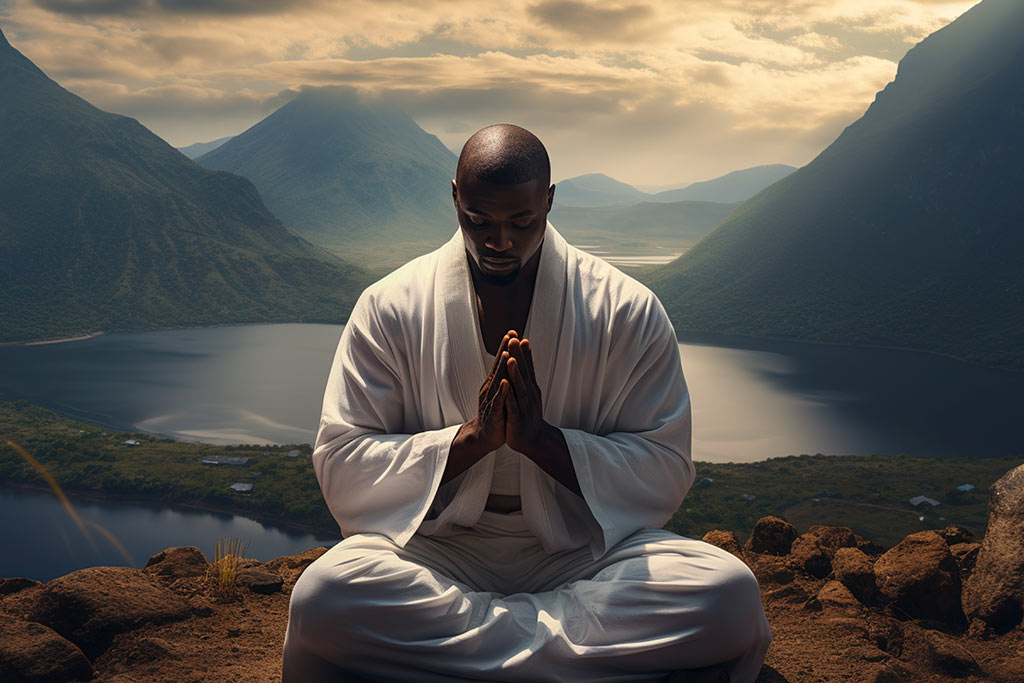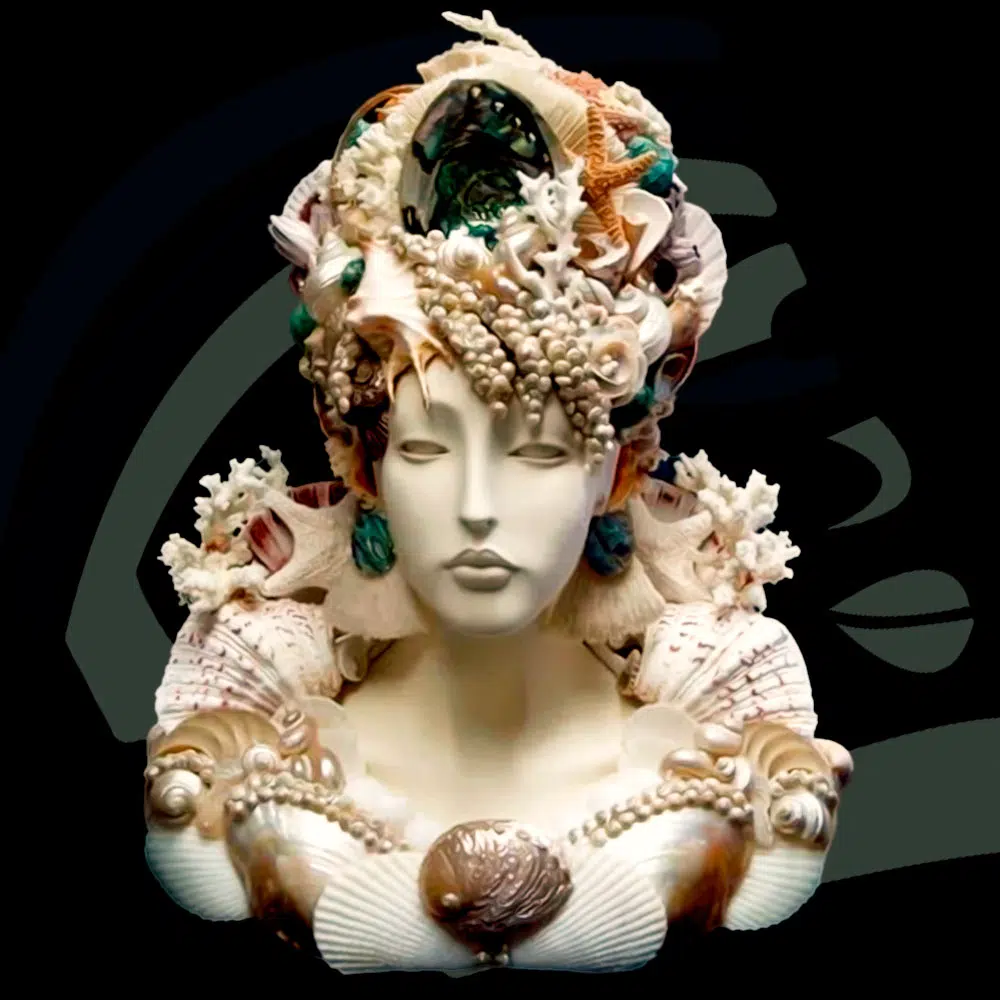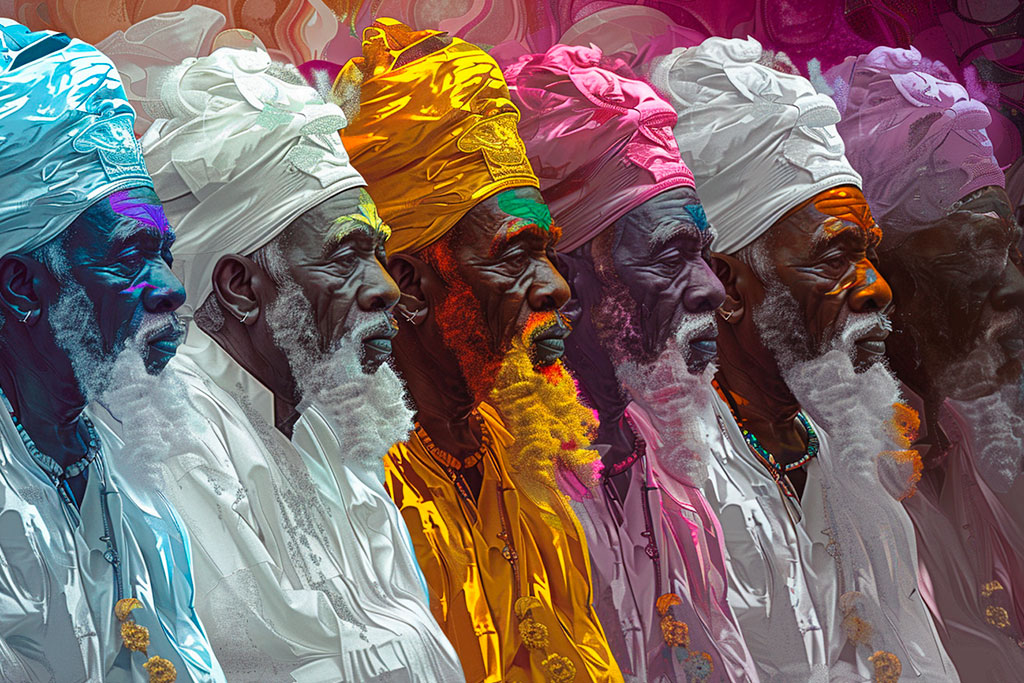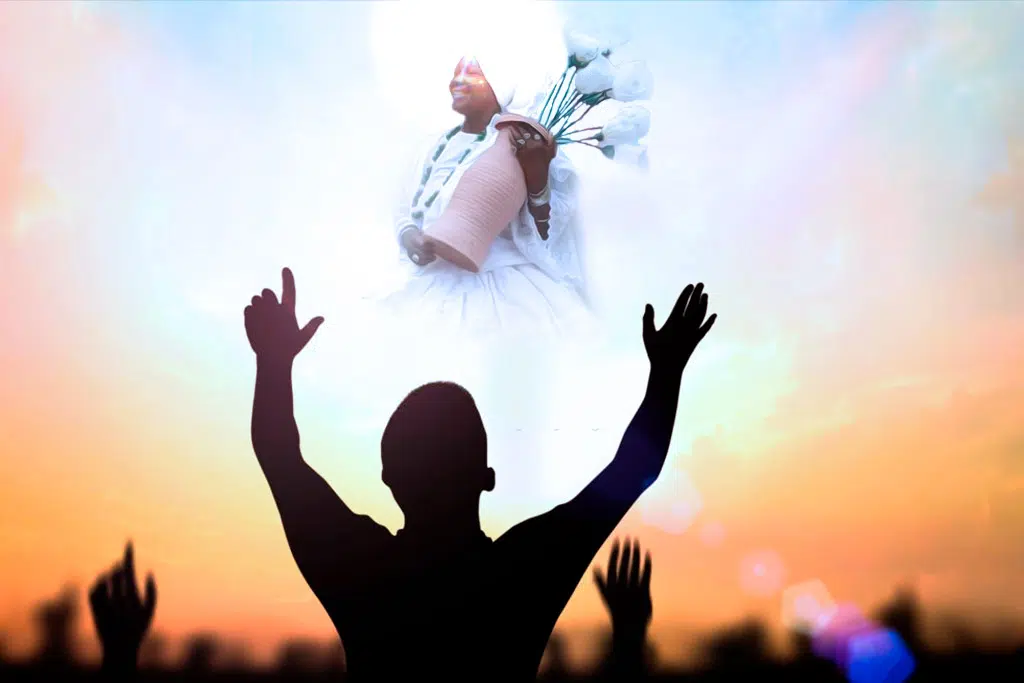What are Obatala's children like? Main features

To answer, What are Obatala's children like?, we must talk about the nature of his tutelary Orisha. Baba, he is usually a careful, attentive and very patient father with his children. He likes to express himself in a very expressive way in his characteristics and personality, influencing in such a way that he highlights in them the traits described below:
- First of all, Obatala's children usually develop a personality that can vary between two poles; On the one hand, they can be peaceful and thoughtful people who tend to be calm and abstracted, valuing peace and harmony in their lives and seeking peaceful and practical solutions to problems; On the other hand, they can behave erratically, even causing the conflicts that afflict them in their environment, becoming problematic people and wanting to attract attention at any cost, in addition to being crazy. This ambivalence makes them considered explosive and unpredictable.
- On an intellectual level, they are meticulous and perfectionists, they tend to be very detail-oriented and tend to strive for perfection in everything they do. Furthermore, their innate curiosity drives them to seek and acquire new knowledge. They like to learn and expand their understanding of the world. They are also intelligent and very creative. They excel in visual arts, music and other forms of artistic expression. Therefore, they can become very skilled at tasks that require precision, preparation, and meticulous attention.
- On a social level, Obatala's children stand out for being charismatic, skilled in interpersonal relationships, collaborative, sociable, and refined. They generally have a strong sense of ethics and morality, they always want to do what they consider right, and sometimes they can become obsessed with it. They have a natural calling for healing and counseling. They are usually the first to offer advice and are very helpful.
- On a spiritual level, Baba's children have a deep respect for traditions and cultural norms. They tend to be very devout and religious practitioners of deep faith, developing a deep-rooted connection with the spiritual. They actively participate in religious rituals, are proactive, enthusiastic and seek a deep understanding of spiritual life.
- In love, the children of Obatalá stand out for their search for stable and lasting relationships, they greatly value being offered firmness and peace, at any cost. In general, they are loyal people and faithful to their partners. They try to avoid betrayal and constant conflict, although if they feel betrayed this can have serious effects on their behavior. For this reason, they prefer to encourage open and honest communication in which they can express their thoughts and feelings, where mutual understanding thrives. They can take the time to build strong, long-lasting relationships.
- On an economic level, the children of Obatalá adhere to their nature that inclines them towards the search for stability, therefore, they tend to be very hardworking, protect and value financial security in their lives. They prefer to avoid unnecessary risks and make economic decisions with prudence and care, to the point that they can be called selfish; however, they are capable of sharing their financial benefits with the people they care about most. The most outstanding thing in this aspect is that the Olo Obatalá usually have great skills in planning the administration of their resources in such a methodical way that they are willing to make short-term sacrifices to achieve long-term financial goals, which, helps them succeed quite regularly.
"The followers of Orichanlá consider it to have powers to make them very prosperous, granting them material blessings."
(Adrián de Sousa Hernández. The Orichas in Africa. An approach to our identity. Editorial De Ciencias Sociales. 2005. p.87).
- Physically, they often reflect Obatala's influence in their appearance. Her hair is usually gray or graying after being consecrated in kariosha. Her face tends to be a little pale and sometimes haggard, but it conveys a serene feeling. They tend to develop an upright posture and a natural elegance in the way they move. They are usually thin, symmetrical and harmonious. They take care of their personal appearance, tend to walk impeccably, and can stand out in their clothing and personal style.

Finally, it is important that the children of each deity respect their taboos or ewes, to maintain the blessing and sympathy of their guardian angel at all times, and in turn, avoid attracting energies that could cause disturbances or losses of any nature. . The children of Obatala, in particular, must respect the following taboos: women, during the menstrual period, cannot manipulate their attributes; they should avoid wearing black; They are recommended not to abuse alcoholic beverages; in front of its foundation they cannot say rude things or be naked; and they cannot offer foods to Obatala that contain salt or corojo butter.
References
- De Sousa Hernandez, Adrian. (2005). The Orishas in Africa. An approach to our identity. Editorial of Social Sciences.
- Dos Santos Juana. (2002). Os Nago ea Morte. Voices Editor.
- Caudillo Diane Elizabeth. (2007). Prayers to the Orishas to look at Santeria.
- Ifa Orilana Aworeni Odumola Sowunmi. (2009). The nature of the Orisas. Rosebud Editions.
- Ócha'ni Lele. (2012). Sacrificial Ceremonies of Santería: A Complete Guide to the Rituals and Practices. Destiny Books Publisher.
- Shango Omo Asa. (2021). Orisha's power. Independent publication.
- Silva, Marie. (2021). Orishas: The Definitive Guide to the African Orisha Deities and Their Presence in Yoruba, Santeria, Voodoo, and Hoodoo, with an Explanation of Dilogun Divination.






